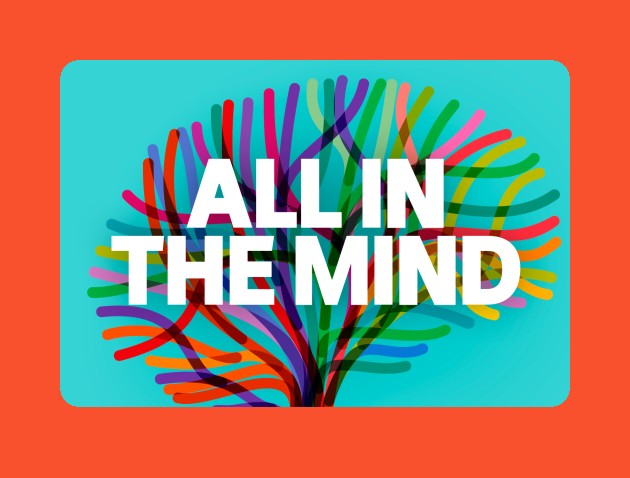Choose an Option
“Golden slumbers fill your eyes…”
WHAT IS LONELINESS?
Loneliness refers to the feelings of sadness and distress we carry when we have less social connection than we desire. It’s an evolutionary response from back in our early tribal days when being connected to the community and maintaining strong relationships was critical to our survival. Now, when our brains register a feeling of being separate from other people, we feel loneliness – and it doesn’t feel good. You can still be lonely in a group of people, and this may be a result of the sense that you’re not sharing anything that matters with anyone else.
Even though we’re apparently more connected than ever, heaps of Aussies are reporting feeling lonely. This might be due to a number of factors including living alone, feeling disconnected from one’s community, doing work that requires travel or relocation, or separation or loss in relationships, and blokes seem to experience it more than women. Research has found that chronic loneliness has been linked to poor physical and mental health, being dissatisfied with life and not living as long. Basically, it’s as unhealthy for you as smoking.
TIPS FOR WHEN YOU’RE FEELING LONELY AND ISOLATED
Check where your head’s at
One of the most dangerous sides of loneliness is interpreting the feeling of loneliness as a fact. Often our brain wants to justify why we’re feeling down and might bombard us with messages like “you’re a loser” and “no-one wants to spend time time with you.” When we tell ourselves these things often enough, we start to believe them and this erodes our sense of self-worth. Learn to develop a mindful relationship with your thoughts, where you can watch them come and go, without buying into them as the one and only truth.
Give yourself something to do
Folks who are engaged in work or volunteering are more likely to build social connections and exist with a sense of purpose. Find work that you’re passionate about or find a way you can use your time to help or care for those in need.
Find people like you
One of the great things about being alive today is that we can connect with people with all kinds of wacky hobbies and interests. Hunt around for groups or communities that enjoy the same kind of things that you enjoy. That common ground can be a great starting point for kicking off new friendships.
Show up for other people (including yourself)
When you’re feeling low and your self-confidence is shot, it’s easy to justify cancelling plans and bailing from commitments you made for yourself at some earlier point. Recognise that getting amongst it, being around people and taking advantage of opportunities to connect can be really helpful to get you out of the funk of loneliness and empower you to continue making positive choices for yourself.
Get grateful
Sometimes when we’re feeling lonely, we can be incredibly “self” focused, “Nobody likes me”, “I have no friends”, and it can be useful to flip the switch by acknowledging things that exist in our world that bring us joy and happiness. This starts to reprogram our brain to be on the lookout for the good things, instead of hyper-focusing on the bad.
Watch out for warning signs
Feelings of tiredness and lack of motivation, sleep problems, body aches and pains like stomach aches or headaches, drinking or using drugs frequently, eating too much or not enough, feelings of worthlessness or hopelessness, and thoughts of suicide are all signs that you might need some support. Be brave and reach out to someone in your life, be that a friend, a doctor or a mental health practitioner.
OK.. WHAT NOW?
If you’re feeling lonely and isolating and recognising those warning signs as part of your daily life, it can be useful to
Ask for help and recognise you might be struggling
Reach out to family and friends or find yourself a support group where people might be facing similar struggles.
Find a mental health practitioner that’s right for you
Ask around, get on Google or ask your GP for recommendations.
Call the Support Act Wellbeing Helpline on 1800 959 500
The Support Act Wellbeing Helpline is a free, confidential counselling service that is available 24/7 to anyone working in Australian music or the arts, who needs to talk to some one about any aspect of their wellbeing.
It is delivered in partnership with Access EAP*, with funding support from the Australian Government through the Office for the Arts, and is staffed by professional counsellors who offer expertise in all areas related to mental health (e.g. depression, anxiety, addiction, suicidal feelings) as well as issues which can be mental health related (such as loneliness, relationship breakdown, financial worries, illness and workplace conflict).
Remember: If you, or someone you care about, is in crisis or at immediate risk dial 000 now.
TOP PODCASTS
33 How Loneliness Tells You Where to Go, with David Whyte | 19 MIN
The Lonely Hour
An exploration of loneliness and solitude.
The Lonely Hour is a podcast about loneliness–but it’s not a bummer. Julia Bainbridge has created a space to talk openly in hopes of both de-stigmatising loneliness and underscoring the joys of solitude.
Listen to The Lonely Hour here
How You Can Feel Less Lonely | 14 MIN




